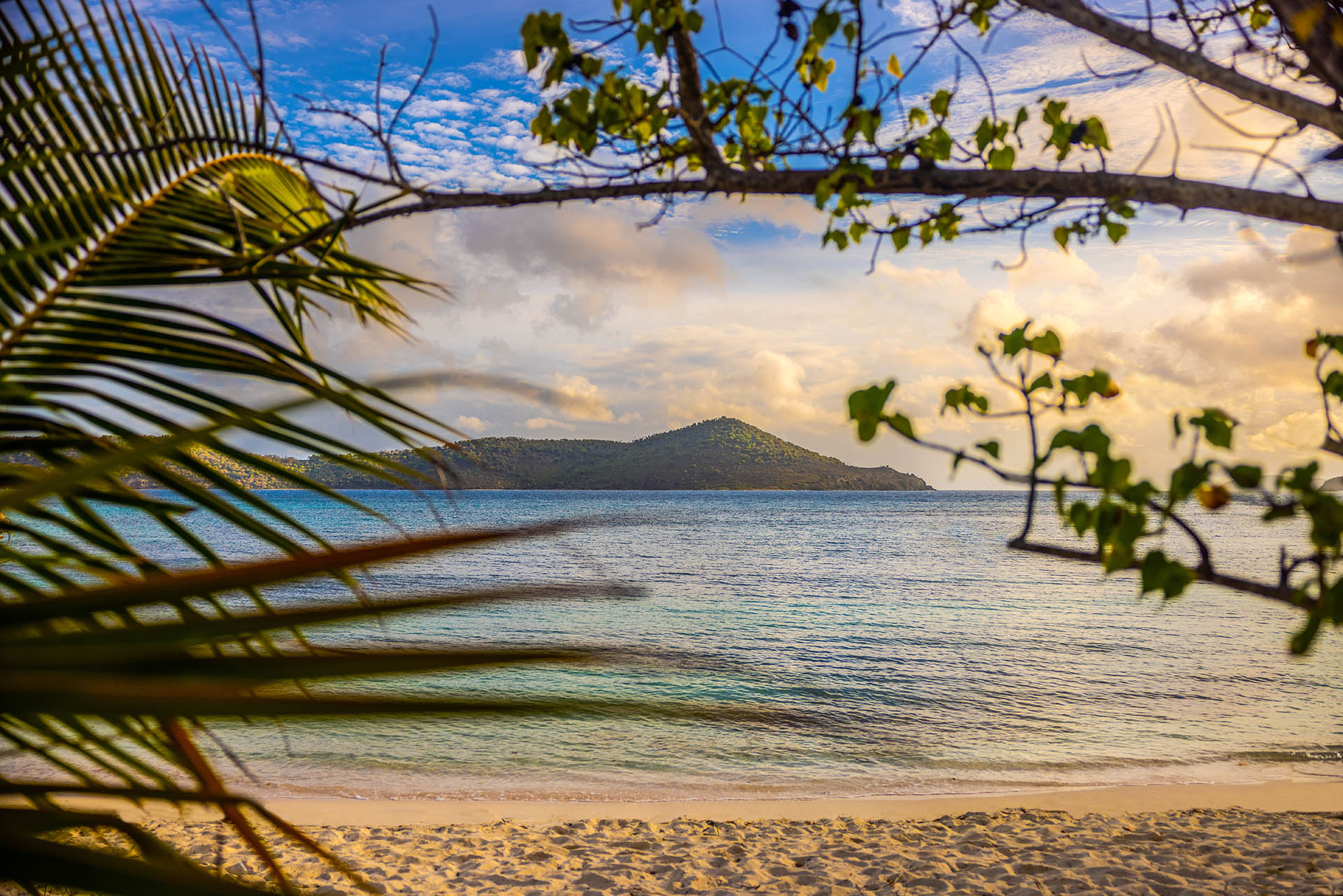
Daydreaming about uninhabited islands could probably qualify as an official Virgin Islands pastime. What could you put there? An eco-resort? A little house with a shady wrap-around gallery? Or maybe you leave it as it is and host bourgeoisie weekend cookouts on your private island.
Little St. James has the mansion and the helipad and all that but there’s something about a blank slate that gets the mind going.
Thatch Cay, the island looking back at you from Coki Point, is just such an empty space. At 230 acres, the rugged islet less than 3,000 feet north of Coral World is more than 4.5 times the size of Hassel Island. It’s sunbaked rocks, scrubby brush, and whatever your daydreams put there.
Turning those island fantasies into reality starts at about $25 million, according to the many real estate companies listing the property.
The cay is zoned for low density residential use, R1, meaning two dwellings could be built on each of the three large parcels. It could also possibly be subdivided into lots as small as 0.5 acres. Not all of the land is buildable, of course. The island has a steep ridge line.
In its current configuration, the central parcel and low-lying western parcel are both 57 acres. The eastern parcel, with a peak elevation of 500 feet and cove ideal for a dock, is more than twice that size at 115 acres. The area where a dock might be built is close to several species of threatened coral.
There is zero infrastructure on the cay, save for a few stone ruins and the remnants of a long-dormant copper mine. There are very likely more than a few graves as well.
Thatch Cay — not to be confused with Great Thatch Island and Little Thatch in the British Virgin Islands — was named for a type of palm often used for roofing material and basket making in the 1700s. Danish colonists oversaw their plantation, The Hope, on the cay for a century before the United States bought the territory, according to ThatchCay.com.
“The 1846 census reports that 16 people made their home on the island, including 14 descendants of the original settlers and 2 slaves. Plantation crops at that time consisted of cotton and potatoes,” the website reports.
A century later, a pair of French brothers lived on the island with a large goat, remembered Edward Elkins of his youth in a letter to the Source in 2009. Elkins said the brothers were buried on the cay.
In March 2009, the Senate green lit a plan to build infrastructure for more than 100 villas on Thatch that was quickly met with public outcry, leading the Source to publish an obituary for the cay. The Source did not report the cay’s resurrection when the villas were not built.
The asking price for the cay has varied widely over the years. In 2010, Grenadine Island Villas was seeking to partner with a buyer to build as many as 58 private residences, rental villas, and a beach club. The Bequia, St. Vincent and the Grenadines-based company valued Thatch Cay at $50 million.
Since then, the price has plummeted as low as $19.5 million but has usually hovered around $25 million in recent years.
But some say the cay, like the few other remaining green lumps in the Caribbean Sea lacking snack bars and swimming pools, is actually priceless. It’s the daydream that brings people to empty space — that fact that there is nothing manmade there. In his letter to the Source, Elkins said these spaces are economic drivers that can’t be measured until they’re gone.
“The undeveloped islands are what bring the tourist. They are there to see the beauty and charm. Please, no more Cay development,” he wrote.





